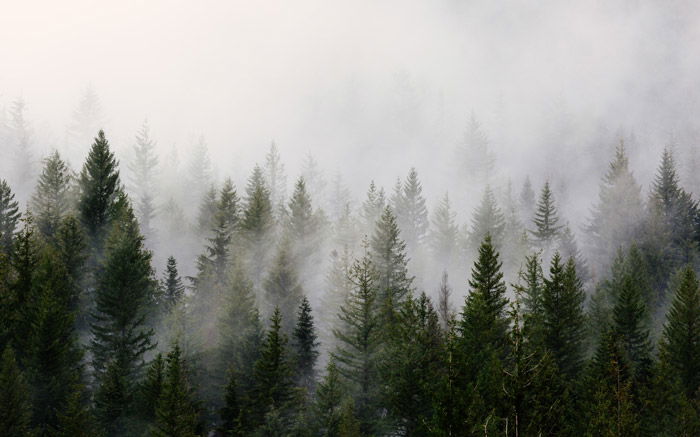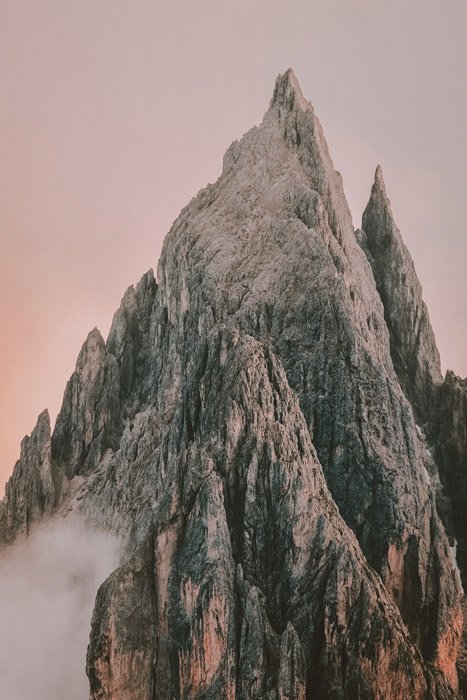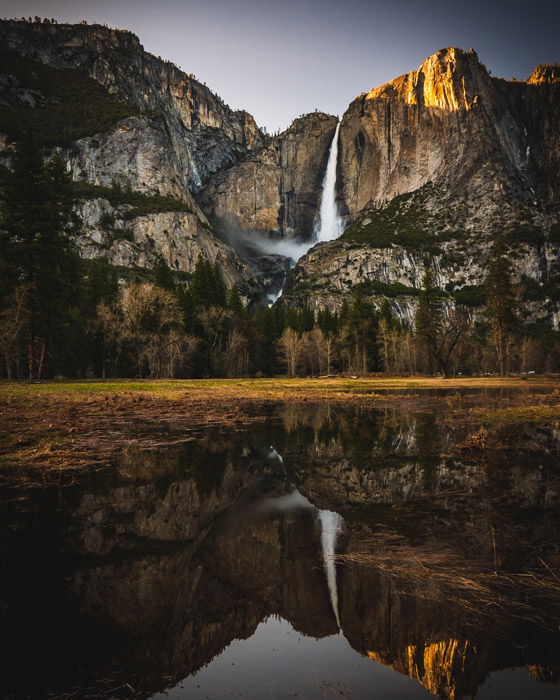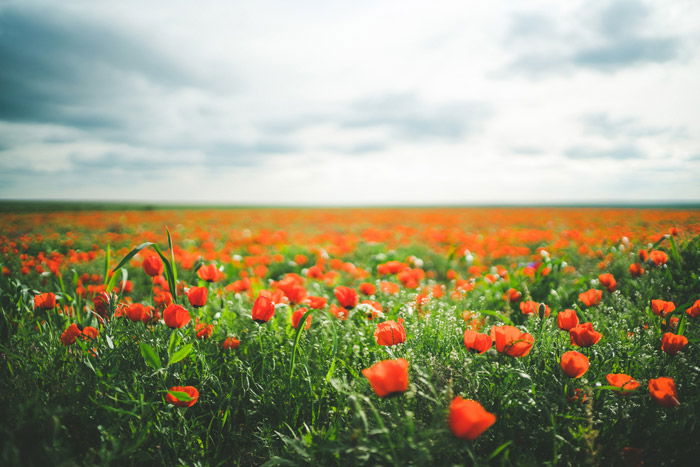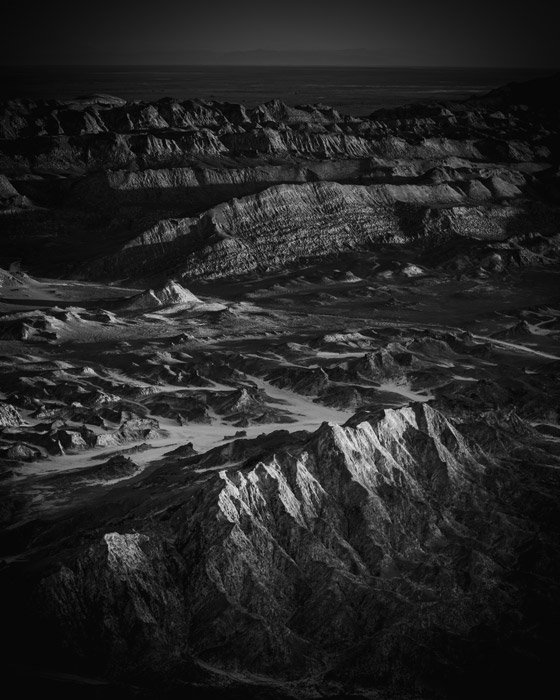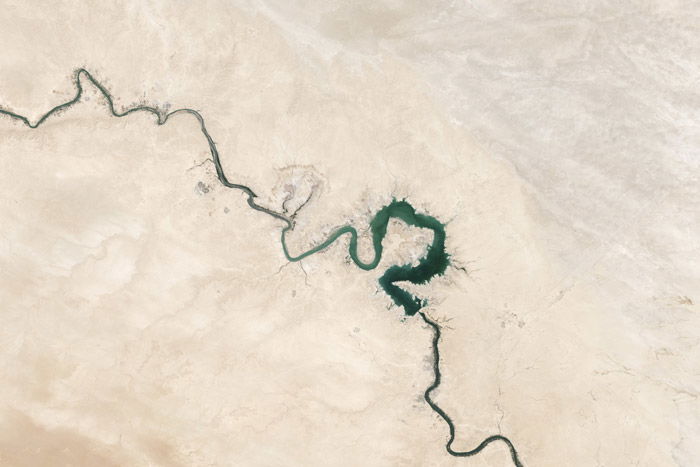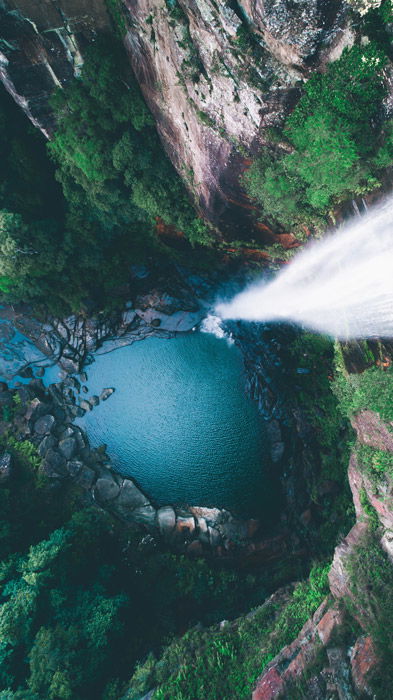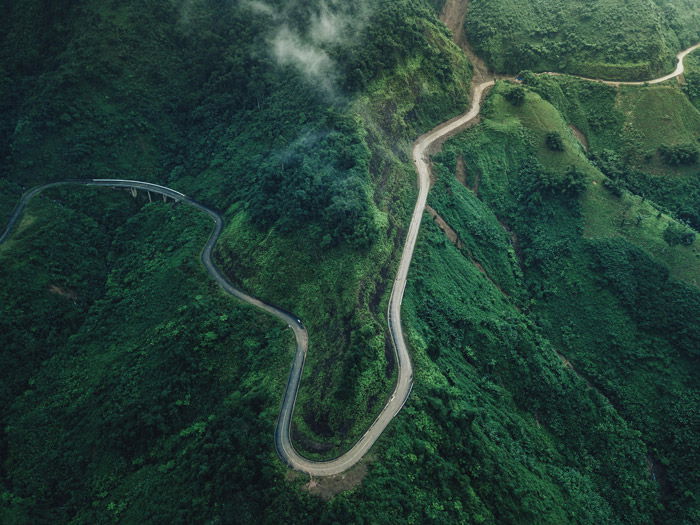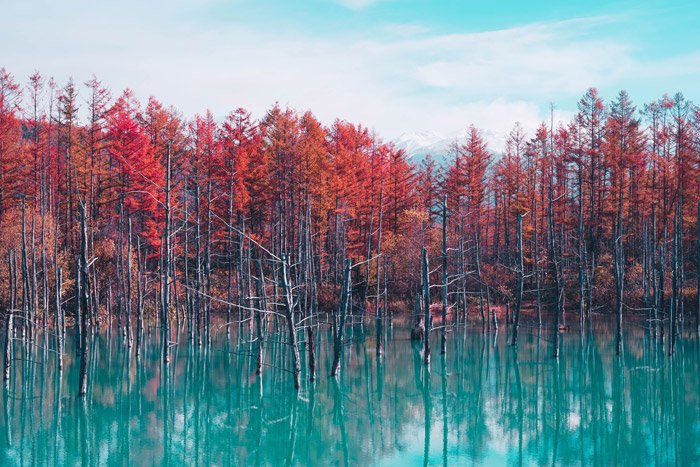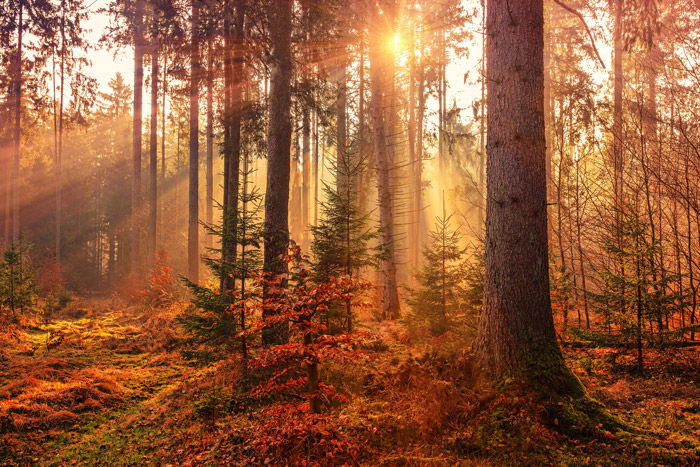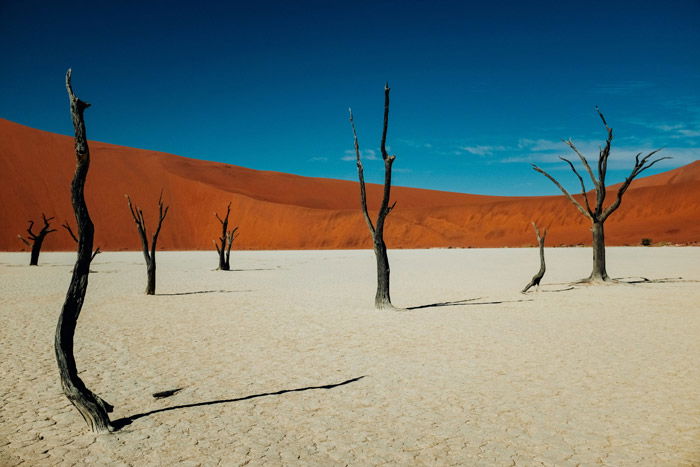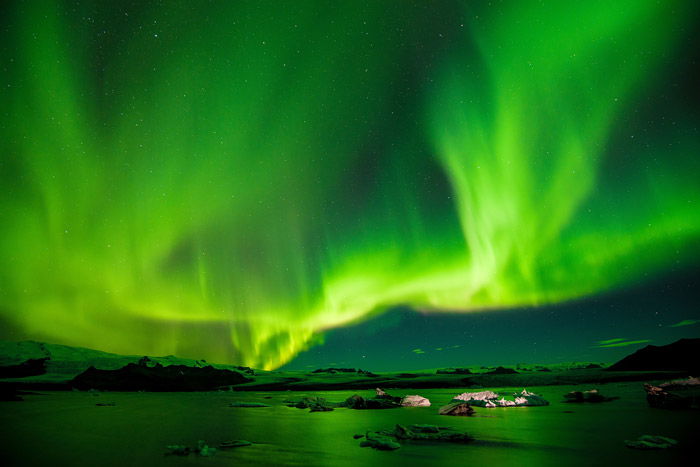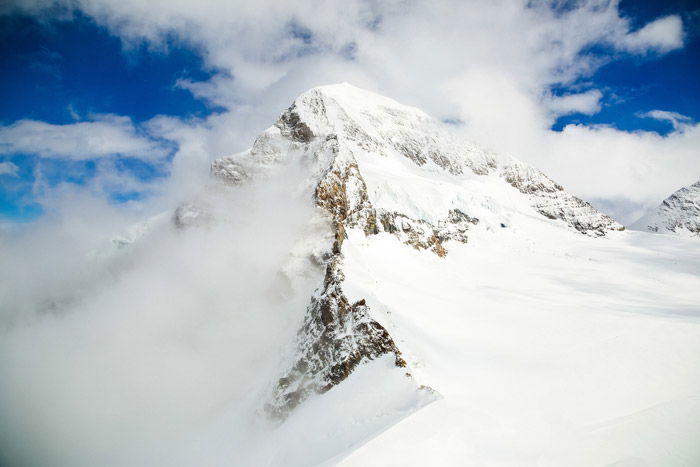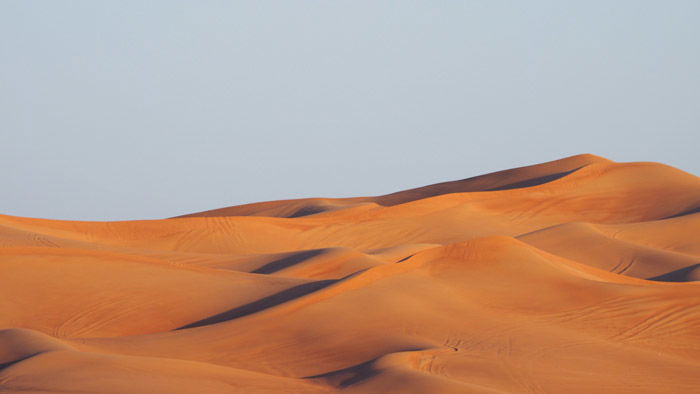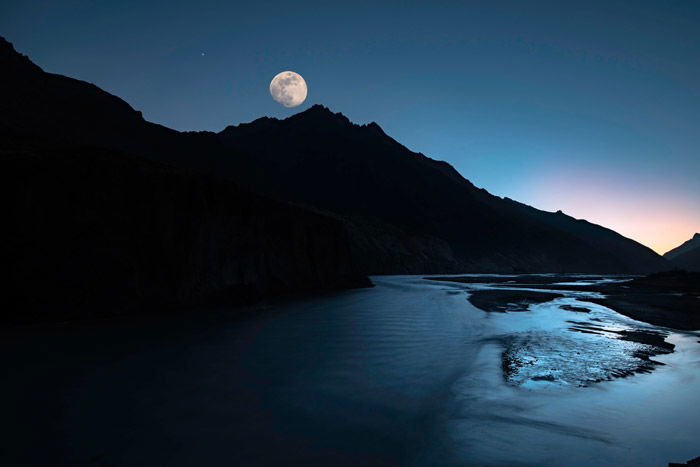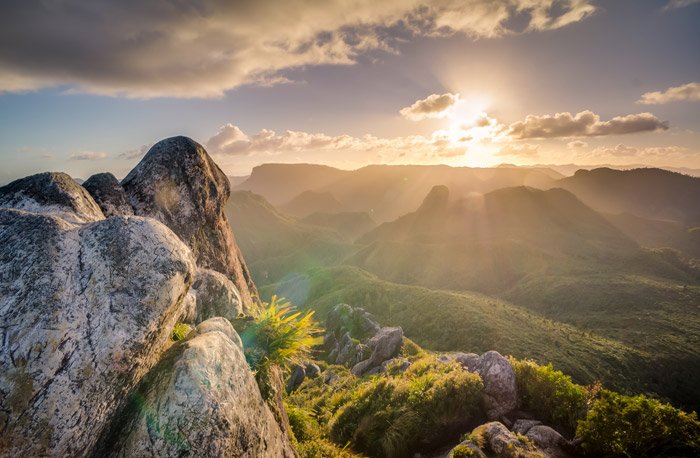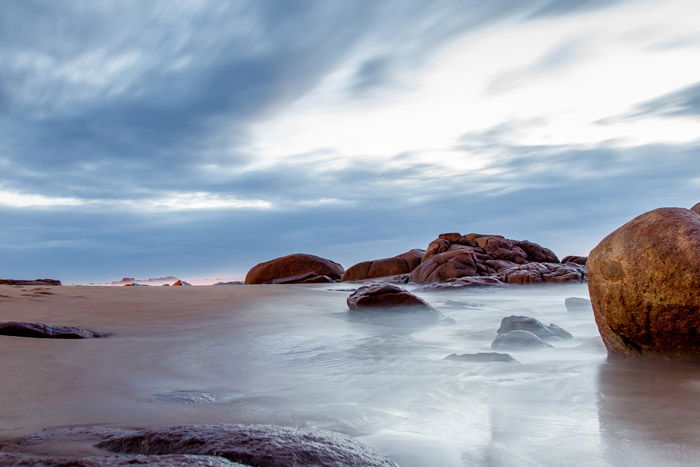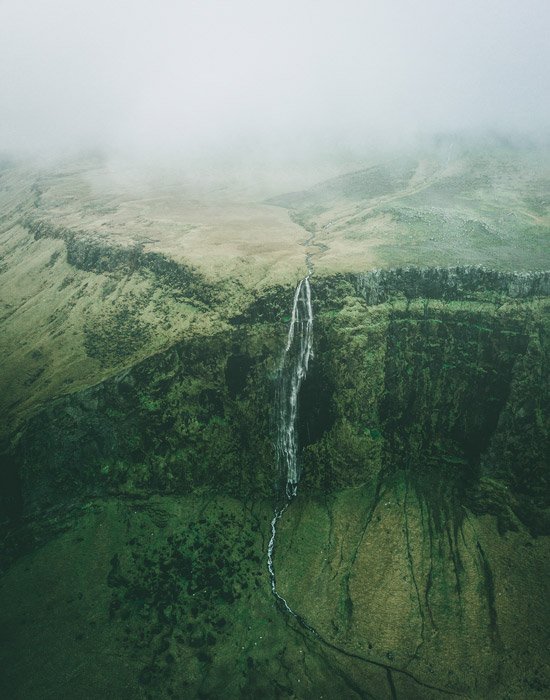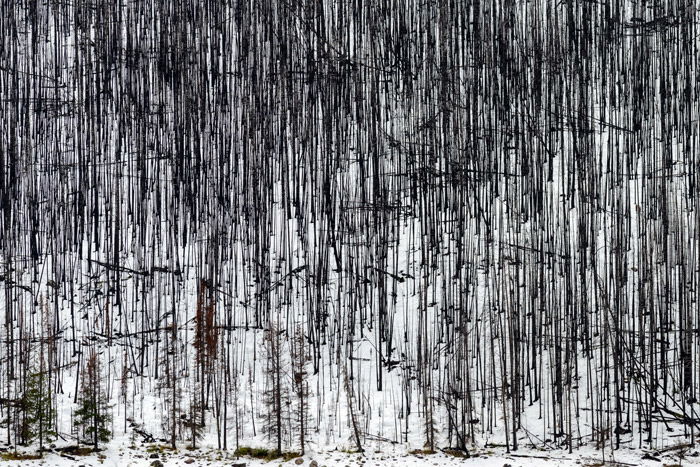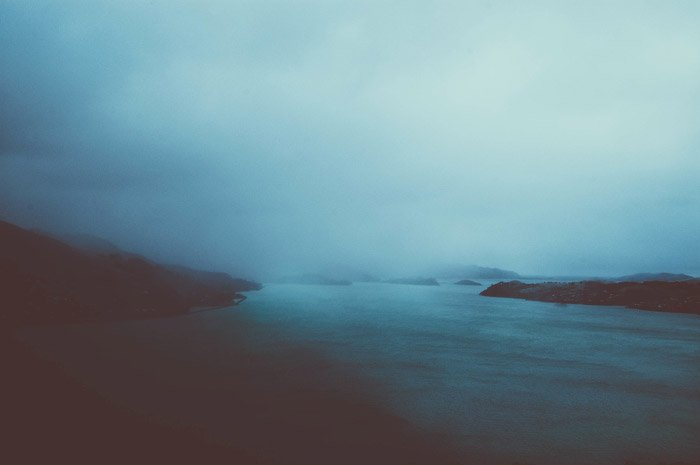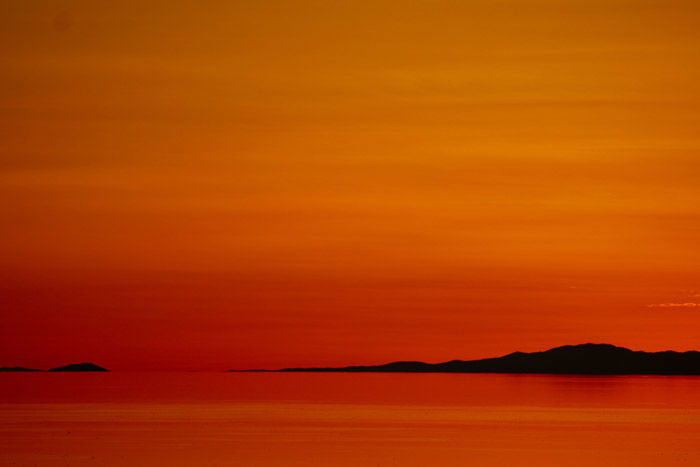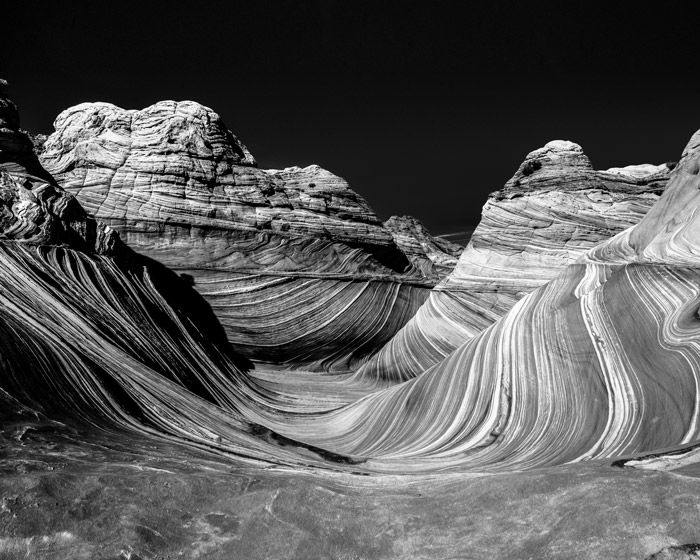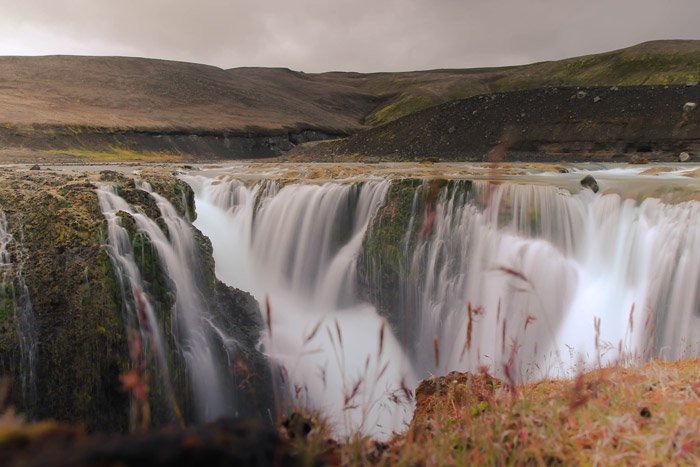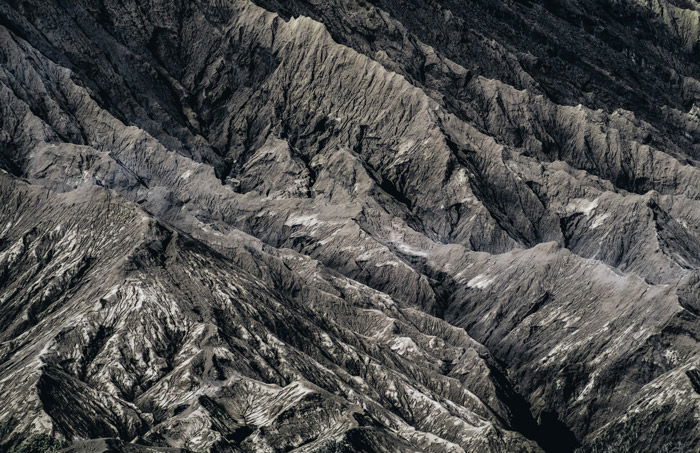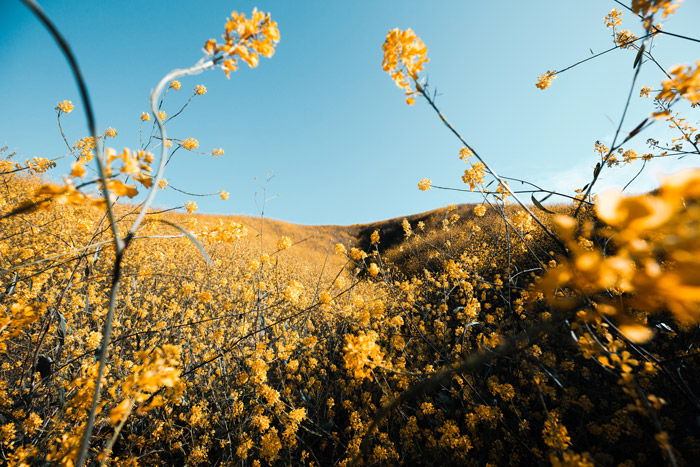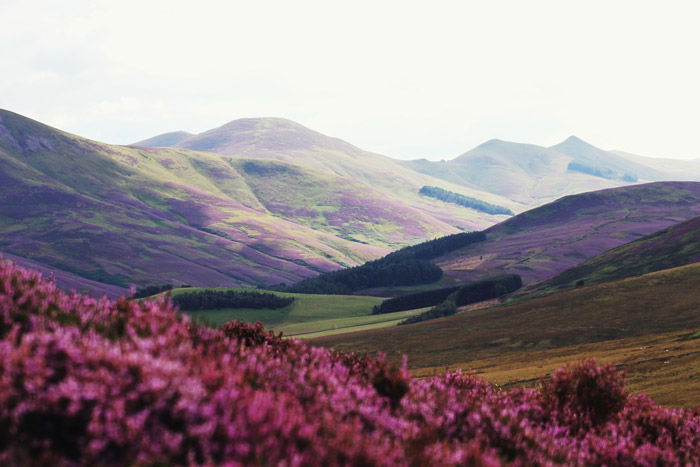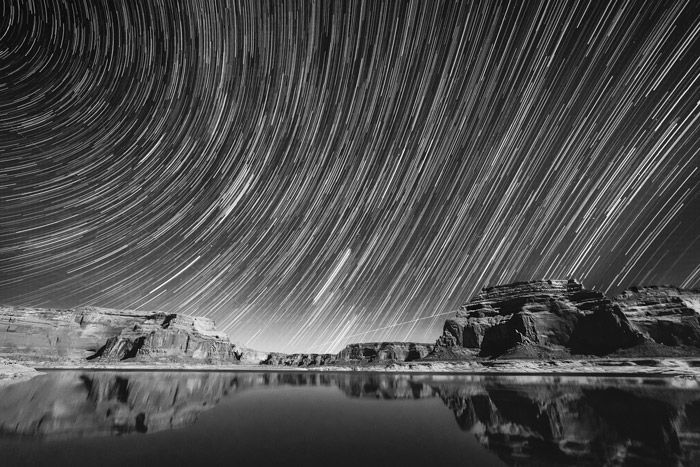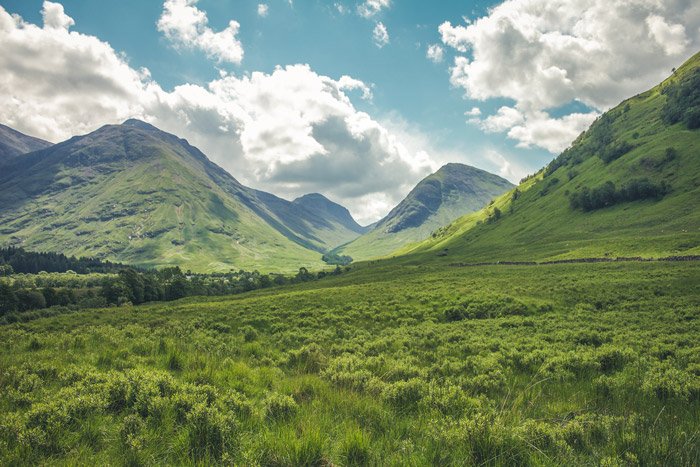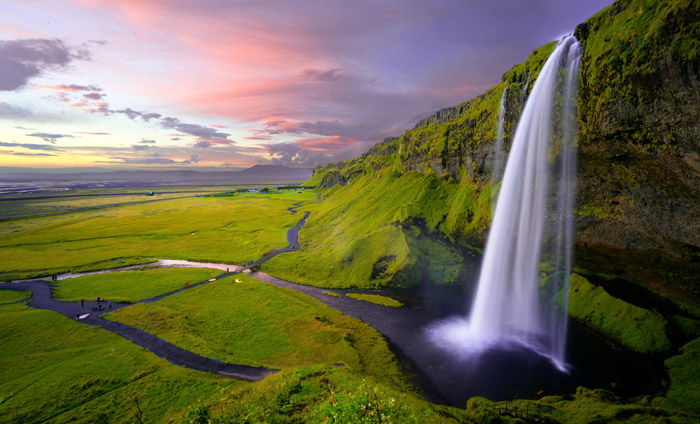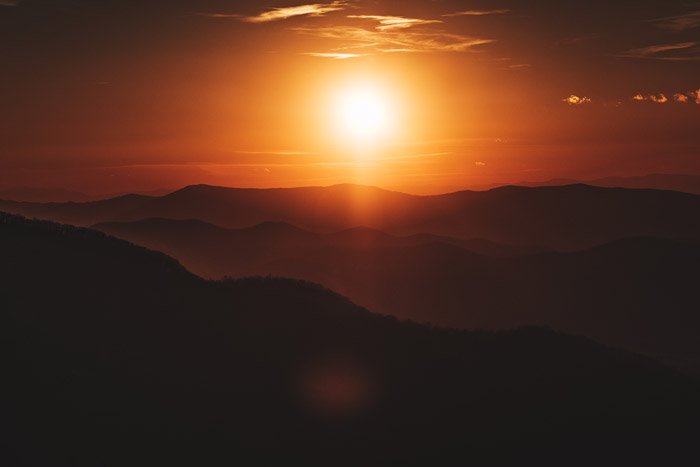Some landscape photographers exclude any evidence of human intervention. Others incorporate human influence as a juxtaposition between the artificial and the natural. Either way, landscape photography surpasses language and distance, centering instead on our innate connections with nature.
30 Beautiful Landscape Photos to Inspire Your Work
Here are 30 examples of beautiful landscapes. Take inspiration from them and start shooting!
1. Photograph Fog or Mist
By cutting off aspects of a photograph, fog and mist create stunning depth in a landscape photograph.
2. Take a Portrait of a Landscape
Landscapes don’t have to be, well, landscape. Some of the best landscape photos are in portrait orientation. This gives the viewer a feel for the depth and size of a subject.
3. Reflect on Reflections
Reflections reinforce a landscape and illustrate the literal balance of the natural environment.
4. Focus on Color
Colorful landscapes reflect the way most of us see the world. An environment develops its personality through color associations (we’ll have a look at a few later).
5. Go Black and White
Black-and-white photography is eye-catching. It draws particular attention to the many shapes and forms that make up a natural environment.
6. Keep It Simple
Minimalist photography strips an image back to the bare bones of composition. Try adopting a minimalist approach to landscape photography. It emphasizes the strong elements of a landscape by minimizing or eliminating weaker elements.
7. Change the Perspective
A shift in perspective can be all it takes to create a spectacular landscape photograph.
8. Depict Human Intervention
The juxtaposition of nature and human-made structures cultivates fascinating landscape imagery. Evidence of human activity emphasizes the wilderness or the fragility of an environment.
9. Seek Out Pattern and Repetition
Pattern and repetition in landscape photography capitalize on our natural human tenancy to seek out visual order.
10. See the Forest From the Trees
Forests are ecosystems that seem to burst with the beauty of nature.
11. Get Out in the Open
Try photographing landscapes beneath the open sky. It creates a striking contrast between the land and the atmosphere.
12. Be Captivated by Auroras
If you are lucky enough to witness the auroras, have a good camera with you! The auroras create an otherworldly glow, illuminating the sky and the surrounding landscape.
13. Take Pictures of Snowy Landscapes
Snow can be tricky to photograph. But the wonder of a snowy or frozen landscape is well worth the effort.
14. Dig the Desert
Deserts and dunes are amazing natural phenomena. Capturing the qualities of each isn’t difficult. And it makes for great landscape photography.
15. Shoot for the Moon
The moon has been the muse of countless painters over the centuries. Add it to your images to include a layer of time and depth to a photograph.
16. Chase the Sun
Incorporate the sun into a landscape photograph. It speaks to the natural cycle of the world we live in.
17. Go Coastal
Coastal sites provide great opportunities for melding land and water-based photography.
18. Get a Bird’s eye View
Not everyone has the opportunity to view the landscape as a bird would. Aerial photography transforms the earth below. It creates unique and compelling landscape photography.
19. Embrace Abstraction
Abstraction is the minimization of literal references to the visual world. In abstract landscape photography, distance, isolation, and repetition techniques create abstracted environments.
20. Get Into the Blues
Blue is associated with beauty and emotion. The blue hour delivers atmospheric imagery that conveys emotion and intrigue.
21. See Red
Red catches and directs the attention of the viewer. We often link it to love and heat. Red is a color of energy and passion. Red sunsets, sunrises, and autumn leaves can all create spectacular landscape imagery.
22. You Rock
Rocks and soil build and shape many environments. Focusing on rock forms is a beautiful way of investigating a landscape.
23. Go Chasin’ Waterfalls
Waterfalls are one of the most popular subjects in landscape photography. Capturing a waterfall adds movement and momentum to any photographic landscape.
24. Slip Into Shadow
Shadows amplify line, shape, form, texture, and light. In landscape photography, even the slightest shadow is enough to create dynamic imagery.
25. Love Yellow
26. Go With Florals
Flowers are a charming feature in many landscapes. They add vibrancy to an image and signify season and climate.
27. Incorporate Star Trails
Star trail photography merges landscapes with earth movement. Use them to explore the dynamic beauty of our small planet.
28. Go Green
Drawing associations with nature and calm, green landscapes illustrate a flourishing natural environment.
29. Slow Down
Using a slower shutter speed produces soft, fluffy movements of water. This is a delicate way to enhance the energy of a landscape photograph.
30. Sign Off With a Sunset
Last but not least are sunset landscapes. Sunsets render the world in myriad shades of beautiful light and color. If you want a dramatic rendering of a landscape, wait for the sun to start setting.
Conclusion
And there you have it—30 beautiful examples of landscape photography. Has this list inspired you to create some of your own magical landscape imagery? Please share in the comments below!


